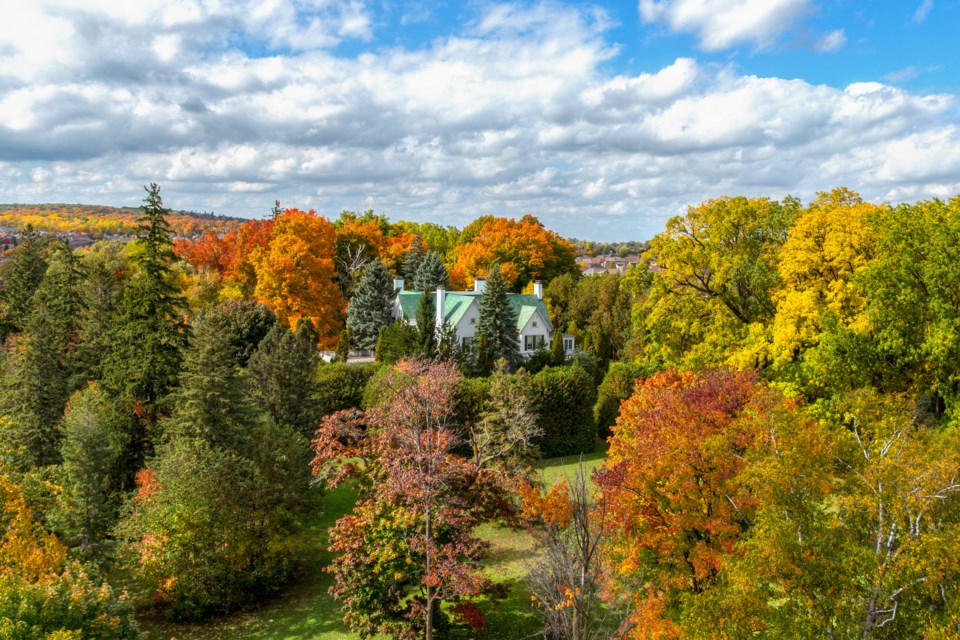In Context is an occasional series on NewmarketToday that provides background and highlights the impact of ongoing news and issues in our community.
As the town forges ahead with the design of the recreational space that will be Newmarket's Central Park, the community's taxpayers' advocacy group remains outspoken in its concerns about the cost of the ambitious project.
“There are more pressing needs in town,” Newmarket Taxpayers’ Advocacy Group president Kathy Kumpula said regarding the town’s purchase of the historic 11.6-acre Mulock estate property on the northwest corner of Yonge Street and Mulock Drive.
“Do we really need it?”
The group pressed the town over the initial $24-million purchase of the property in 2018, done using debt financing. That led to a $44 tax increase on an average Newmarket household to pay for a 30-year debenture, or a $1,320 cost for each home paid out over 30 years.
Planning for the park is now well underway, with a $40-million estimated budget that the town has said will not be funded through taxation. But Kumpula said the group has not changed its views on the project since the purchase happened.
NewmarketToday conducted a poll that found local respondents have mixed feelings about the municipality's biggest recreational project. As it carries forward in the planning process, we asked our readers: What’s your opinion on the town’s Mulock park project?
Here are the results:
- I'm excited about it, it will be a great addition to the town's recreational and cultural amenities — 32 per cent, 249 votes.
- I have mixed feelings, I like the idea of additional 'places to play' in town, but I'm not sure about the $40-million estimated cost — 30 per cent, 234 votes.
- I don't know enough about it. I'd like to get more information first. —19 per cent, 145 votes.
- I am completely opposed to it. I think it's a big waste of money! — 19 per cent, 149 votes.
The poll ran from March 29 to April 5, garnering 690 local votes, providing a 95 per cent confidence level and a +/- 3.72 per cent margin of error.
The most popular choices saw local respondents with either mixed feelings or excitement about the project, at 32 and 30 per cent. But many also expressed outright negativity (19 per cent) or lacked knowledge about the project (19 per cent).
READ MORE about the history of Sir William Mulock and his family estate
Beyond the initial purchase of the property, the town has repeatedly assured that developing the estate into a park would not impact taxation. The $40 million is getting funded through development charges. However, that amount excludes the price of repairs on the Mulock estate house. The town has earmarked $2.8 million to start on those repairs and another $500,000 to design its new use, though said those would come from more development charges, grants and reserves, rather than taxation.
Mayor John Taylor said having mixed feelings about the $40 million is a “valid response” and unsurprising. However, he said they want to have more conversations with residents to make it clear that the development costs would not impact taxation.
“When people understand that more and more, they’ll have less concern,” Taylor said.
He stands by the decision to purchase the property.
“The ability to build one significant (park) — almost like a Central Park for a town — was there, and it was only there once. And it remains the right decision,” Taylor said. “Nobody looks back to the Boston Common or Central Park in New York, any major park, 20, 50, 100 years later, and goes ‘that was a bad idea.’”
The project is slated to feature the historic house at the centre of the property once owned by Sir William Mulock as a meeting place, as well as a skate trail and pavilion, a natural playground with logs, a conservatory and diversity gardens, and an art studio space.
Still, Kumpula said that although some will love it, many residents who are commuters may not make use of it.
“They’re kind of insulated in their subdivisions,” Kumpula said. “Will it benefit the community? I’m sure a lot of people would rather have a great park in their neighbourhood for their kids that they could just walk to.”
Taylor said these development charges are collected for recreation and parks, and must be spent on them under provincial legislation. The charges could be used for other recreation projects, but Taylor said that “nothing is going to be shortchanged across the town.”
He said the town is investing in recreation in other areas, citing the Mulock multi-use path and a new outdoor rink, among other projects.
The town remains on track for the $40-million project budget, but has stated it is “cautious that there are unknowns because the project is still in design, and market pricing for construction has been unpredictable due to world events.”
Kumpula said Newmarket has other social problems to address, like housing and homelessness. She said the group has thought it could have made sense to have some housing development on the Mulock property.
“The town was sold a vision of something magical. But the reality of making it into that … there’s so many pieces to it.”



